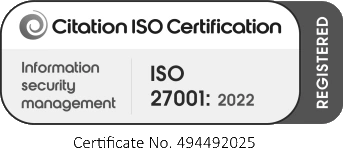If some good has come of the last 18 months, it’s the stark relief into which the pandemic has brought the need for equal access to care for underserved groups across the country, and the speed with which the NHS has taken this on board and responded at all levels.
The gaps in Mental Health provision were well known. But the disproportionate impact of the virus on people living in poverty and people living with underlying health conditions or disabilities has shown up how far there is still to go to provide equitable health services to all. The reluctance among many minority communities to place their trust in authority spoke to a lack of resource in local services, which had they been better supported historically could have built the kinds of local relationships that mean people are ready to engage with health services and local authorities in a crisis.
In response, a national outreach effort has been led from street level to help ensure that no one is left behind. Through the vaccine deployment programme, many systems have now identified and engaged with the populations they serve more effectively than they ever had. The local activity this has driven in the form of community champions and outreach; mobile and pop-up clinics; work across organisations to pool knowledge and resources, has meant that we’ve learned a great deal about what works well in reducing health inequalities in a short space of time. It’s laid the groundwork for place-based population health management and provider collaboration in many systems better than any pre-pandemic response ICS plan ever could. (It’s also exacerbated the existing workforce crisis amid record levels of burnout, but a global pandemic we weren’t prepared for was always going to have that effect.
The fact that this hyperlocal delivery approach, supported by national supply and guidance, has worked so well –76% of the adult population fully vaccinated at the time of writing, with over 87% having received first doses (the biggest immunisation drive in our history) – is more than a little heartening. The question now is how to maintain the momentum going into a new way of working. How to capture the best of everything that’s worked and to let go of what hasn’t; and to formalize it in plans ahead of next April.
This will vary from place to place, but emergent themes from what has worked well in engaging underserved groups include:
- Following the community lead – community groups, volunteers, faith leaders and social prescribing know and understand local communities better than most commissioners and other service providers. Approaching these groups for their support and use of their venues has driven engagement across many systems, and built strong working relationships in the process.
- Engaging people through trusted voices – Similar to the above. Effective engagement with minority and underserved groups takes trust, which takes time to build. Using trusted networks or influencers such as local VCSE organisations to support or lead discussions can help bridge the gap.
- Outreach teams and face-to-face conversations with community groups where rates of literacy and digital access are low
- Increased collaboration across systems – the pandemic response and deployment programme have pushed local partnerships to develop and adapt across providers, local employers, local authorities, and third sector organisations. Keeping these conversations going is crucial to holding onto a more joined up way of working
- Translation and accessible information – locally-produced talking heads, Q&As, mythbusting videos translated into locally-relevant languages; centrally produced animations translated into more than 20 languages
- Using data sources such as the Vaccine Equalities Mapping tool, alongside local intelligence
- Sharing and accessing best practice guidance on platforms such as the Connect and Exchange hub, FutureNHS, Public Health England and local intranets
If you’d like support in developing your system plan in the lead up to next April, get in touch at info@ccal.co.uk












